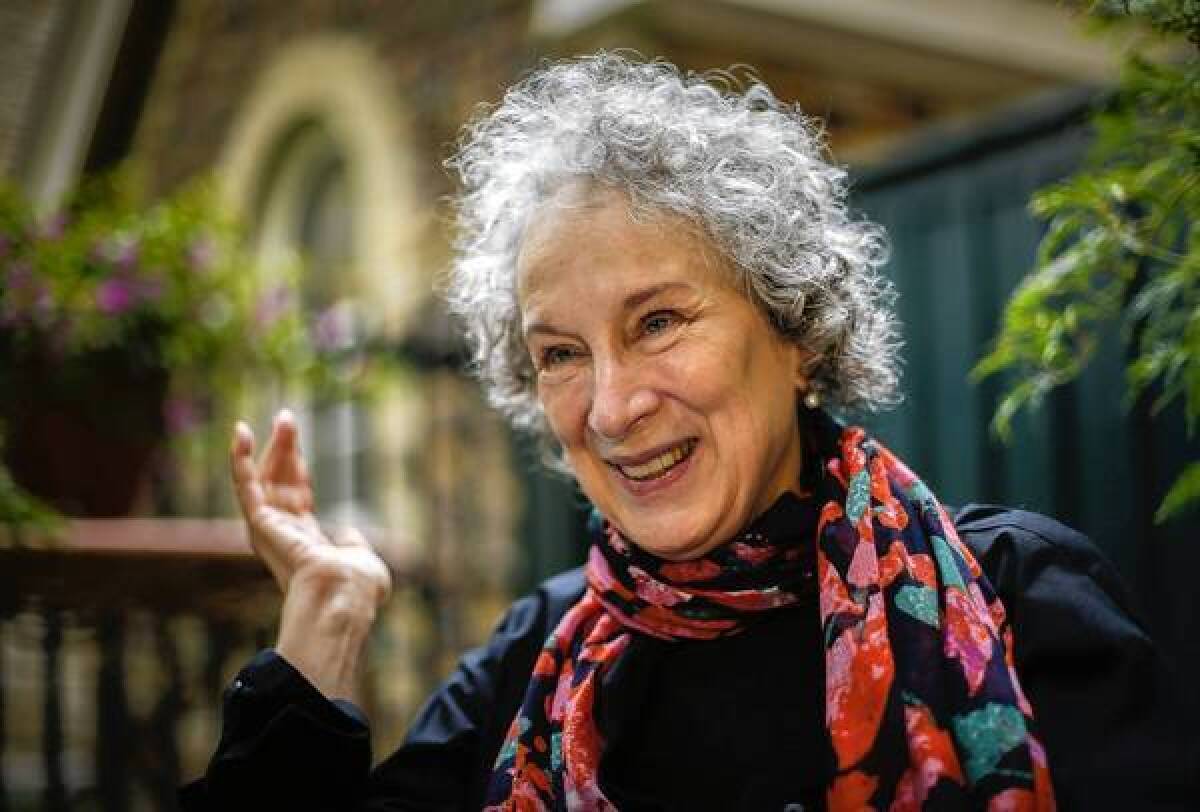Roxane Gay, Margaret Atwood sign open letter supporting trans and nonbinary people

- Share via
Between 1,500 and 2,000 writers, publishers and other members of the literary world from Canada and the United States signed an open letter this week in support of trans and nonbinary communities.
Stephen King, Margaret Atwood, Roxane Gay, Neil Gaiman, Maureen Johnson and David Bowles are among the signatories of the letter, which joins a list of others exposing divisions in the literary community. Hundreds of writers in Ireland and the United Kingdom signed similar letters, written in response to J.K. Rowling’s expression of what many consider to be transphobic views.
“As members of the writing and publishing community of the United States and Canada, we stand firmly in support of trans and nonbinary people and their rights,” reads the letter. “We are writers, editors, journalists, agents and professionals in multiple forms of publishing. We believe in the power of words. We want to do our part to help shape the curve of history toward justice and fairness.
“To that end, we say: nonbinary people are nonbinary, trans women are women, trans men are men, trans rights are human rights. Your pronouns matter. You matter. You are loved.”
Asked why she initiated the letter, Johnson said, “It’s just common decency ... a lot of the discourse [about trans rights] surrounds J.K. Rowling because she’s a very prominent person, and by lending her name to certain positions, it becomes a really big deal.”
“A lot of us who are writers saw the impact that [Rowling’s comments] has on trans and nonbinary readers,” she continued. “It’s one of those situations where you say ‘I can’t believe we have to say this, but of course we support you.’ It’s as simple as that.”
But it’s certainly not meant to fix anything, said Johnson. “It’s just there to start a discussion or to lend a friendly word to whoever needs it.”
Rowling, author of the “Harry Potter” novels, was criticized by the gay and transgender communities in December for showing support to Maya Forstater — a British researcher who lost her job after saying people cannot change their biological sex. “There are two sexes. Men are male. Women are female. It is impossible to change sex,” Forstater wrote on Twitter.
In June, Rowling got into hot water again after taking offense at an op-ed that used the more inclusive expression “people who menstruate” instead of “women.” She responded to the immediate backlash on Twitter by writing that “If sex isn’t real, there’s no same-sex attraction. If sex isn’t real, the lived reality of women globally is erased. I know and love trans people, but erasing the concept of sex removes the ability of many to meaningfully discuss their lives. It isn’t hate to speak the truth.”
Rowling defended her tweets later that month in an essay published on her personal website, which only fueled more backlash.
And last month, the “Harry Potter” creator was criticized again for the reportedly transphobic plotline in her new novel, “Troubled Blood.”
More to Read
Sign up for our Book Club newsletter
Get the latest news, events and more from the Los Angeles Times Book Club, and help us get L.A. reading and talking.
You may occasionally receive promotional content from the Los Angeles Times.











